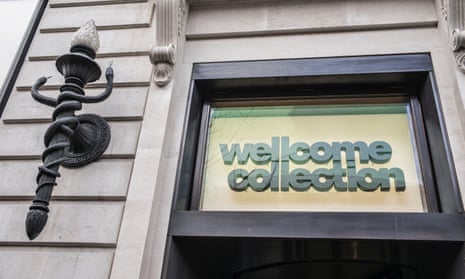The Wellcome Collection has apologised after facing criticism for its decision to promote an event aimed at “womxn”.
Material for Daylighting events, a four-day programme that aims to “challenge archives, change narratives and amplify new voices” sought to open a discussion on “how womxn can challenge existing archives”.
After being challenged the museum tweeted on Tuesday: “We’ve had some questions about why we’re using the word womxn for this event. We’re using it because we feel that it is important to create a space/venue that includes diverse perspectives. It was agreed during our conversations with collaborators as the programme developed.”
We’ve had some questions about why we’re using the word womxn for this event. We’re using it because we feel that it is important to create a space/venue that includes diverse perspectives. It was agreed during our conversations with collaborators as the programme developed.
— Wellcome Collection (@ExploreWellcome) October 9, 2018
But in a statement on Wednesday, the museum rowed back from its defence of the word and apologised for the use of the term. The decision to use it had come from a desire to be inclusive, and it was not used in other contexts by the museum, it said.
“We should have put more thought into whether this was the right term to use when communicating about the event. We made a mistake, and we should not have used it. We’re sorry that we made the wrong call.
“We invite challenges to our thinking and we listen to our audience, so we’re removing the word from the website and from our communications about the event.”
The decision came after hundreds of Twitter users derided the use of “womxn”, calling for the Wellcome Collection to use the term “women”.
The Labour MP Jess Phillips said: “I’ve never met a trans woman who was offended by the word woman being used, so I’m not sure why this keeps happening. As if internet dissent now replaces public policy. I get what they are trying to do but why is it only women not men where this applies.”
I've never met a trans woman who was offended by the word woman being used, so I'm not sure why this keeps happening. As if internet dissent now replaces public policy. I get what they are trying to do but why is it only women not men where this applies. https://t.co/f0gC3J1q9p
— Jess Phillips (@jessphillips) October 10, 2018
The writer and columnist Tracy King said: “So your categories are Men; miscellaneous other? You should have a serious think about what you’re actually trying to communicate here and to whom.”
When the Twitter user Richard Ayres asked how the word was pronounced, another user, Suzie Leighton, responded: “Bullshixt.”
The writer Gregory Norminton wrote: “This is bonkers. Women aren’t even allowed to have an undisfigured word to denote them. Please be consistent and refer to men as mxn.”
Online promotional material for the event uses the word womxn and links to a definition from the Urban Dictionary, which states that the word is more inclusive and shows “womxn are not the extension of men”. It adds that the word is “more intersectional than womyn because it includes trans-women and women of color”.
But critics highlighted other definitions of woman used by the Urban Dictionary, which include “a manipulative human” and “extremely expensive, extremely time consuming”.
The writer Claire King responded: “This is ridiculous. And you are supporting it by linking to Urban Dictionary? Seriously? As far as I know, the word ‘women’ has always included women of colour. Correct me if I’m wrong.”
This is ridiculous. And you are supporting it by linking to Urban Dictionary? Seriously? As far as I know, the word 'women' has always included women of colour. Correct me if I'm wrong. "Womxn: More intersectional than womyn because it includes trans-women and women of color."
— Claire King (@ckingwriter) October 10, 2018
The Twitter user Sam Baxter asked: “Who exactly is this meant to include? Trans women call themselves women, non-binary people don’t call themselves women at all. The only thing that comes to mind is that this could be to include both ‘woman’ and ‘women’, which implies there are women who identify as plurals.”
Other users suggested that the Wellcome Collection needed to have a long, hard think about its use of language. The TV executive Melanie Jappy advised them: “Please. Just go and sit down and have a good think. And then consider apologising.”
